Fueling Creativity in Education
The Fueling Creativity in Education podcast provides listeners with unique insights into the field of creativity research, including best practices for applying this knowledge to a traditional school environment. Thanks to deep dive interviews with renowned creativity scholars, respected practitioners, and passionate educators, every teacher and administrator will walk away with new strategies that inspire and support student and teacher creativity in and out of the classroom.
The Fueling Creativity in Education podcast provides listeners with unique insights into the field of creativity research, including best practices for applying this knowledge to a traditional school environment. Thanks to deep dive interviews with renowned creativity scholars, respected practitioners, and passionate educators, every teacher and administrator will walk away with new strategies that inspire and support student and teacher creativity in and out of the classroom.
Episodes
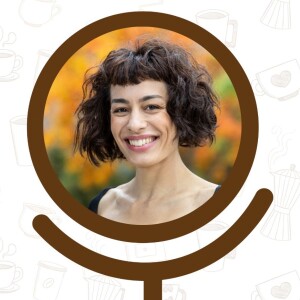
Tuesday Nov 29, 2022
Tuesday Nov 29, 2022
In Part 1 of this Double Espresso episode, Dr. Cyndi Burnett and Dr. Matthew Worwood welcome Dr. Patrícia Alves-Oliveira, a Postdoctoral Researcher who focuses on designing human-robot interaction. Patrícia is especially interested in leveraging the qualities of social robots to empower human health and education, foster creativity in children, and improve mental health among adolescents.
Listen in to this episode to learn the impact of creativity interventions for children, how teachers can assess children to see if those interventions are working, and why it’s not always important to measure the outcomes, but to critique them.
“There is so much around the process that can impact other ways of education. For example, even during the teaching of history or math or biology, could there be a space in the formal curriculum where teachers open a creativity thought process?” – Patrícia Alves-Oliveira
Patrícia shares her best advice for improving your interventions to promote creativity in young children, the power of not having expectations of your students, and how to introduce more fun, playful activities in your classroom.
“We tend to forget this, but the physical world wasn’t born. We created it. So, change it. Change it to whatever you need to make the activity you want to bring in reflected in the environment, too.” – Patrícia Alves-Oliveira
Stay tuned for Part 2 for a discussion on using robots to foster creativity in kids + Patrícia’s Tips for Teachers and Parents!
“I don’t believe that children always need to be doing something to be creative. Sometimes, it happens in the closet of their minds and then it comes out unexpectedly.”
– Patrícia Alves-Oliveira
Recommended Resources:
Read Patrícia’s research papers
Subscribe to our monthly newsletter!
Eager to bring more creativity into your home or classroom?
Access various creativity resources and tools & listen to more episodes of The Fueling Creativity in Education Podcast by visiting www.CreativityandEducation.com.
What to learn more about Design Thinking in Education?
Do you want to build a sustained culture of innovation and creativity at your school? Visit WorwoodClassroom.com to learn how Design Thinking can promote teacher creativity and support professional growth in the classroom.
Have a question? Email Dr. Burnett and Dr. Worwood at questions@fuelingcreativitypodcast.com!
You can also find The Fueling Creativity in Education Podcast on Apple Podcasts, Spotify, Audible, and PodBean! Make sure to rate, review, and share the podcast if you enjoy it!
About Patrícia Alves-Oliveira:
Patrícia Alves-Oliveira is a Postdoctoral Researcher at the Computer Science and Engineering Department at the University of Washington in Seattle. Patrícia received her Ph.D. in Human-Robot Interaction studies in 2020 from the University Institute of Lisbon and spent time at Cornell University as a Visiting Graduate Scholar. Her research focuses on designing human-robot interaction. She is especially interested in leveraging the qualities of social robots to empower human health and education. During her PhD, she studied the application of robots in fostering creativity in children. Now, during her postdoc, she is investigating how robots can demystify and improve mental health among adolescents. Patricia’s interdisciplinary work unifies the fields of robotics, design, and psychology.
Visit Patrícia’s website
Follow her on Twitter
Connect with her on LinkedIn
Read her research papers
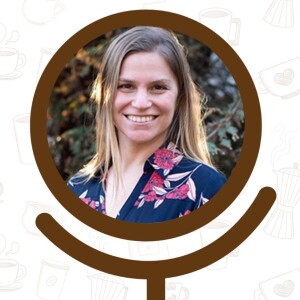
Tuesday Nov 22, 2022
Creative Thinking as the Engine for Change in Education with Lola Schnapp
Tuesday Nov 22, 2022
Tuesday Nov 22, 2022
In this episode of the Fueling Creativity in Education podcast, Dr. Cyndi Burnett and Dr. Matthew Worwood welcome Lola Schnapp, a creativity and education advocate from Chile. Along with Cyndi, Lola is also the co-author of 20 Lessons to Weave Creative Thinking into Your Curriculum. Her passion is to share the power of creativity as an engine for change and growth in education.
Tune in to learn what it means to be deliberate about creativity in education, the powerful role of digital technology in creative development, and Lola’s recommendations on how teachers can deliberately add creativity into their lesson plans. Her insights emphasize the importance of thinking about the affordances that exist in our environments, such as technology tools, and how we’re using these tools to nurture creativity.
“In order to transform schools into innovative cultures, we need to be deliberate about creativity, since it is what starts the innovation process. Without creativity, we don’t have innovation.” – Lola Schnapp
She and Cyndi also talk about the creative process behind their book, 20 Lessons to Weave Creative Thinking into Your Curriculum.
“You need to embody what you want to see in students.” – Lola Schnapp
Lola’s Tips for Teachers and Parents:
See yourself as a creative person.
Have fun, enjoy it! Don’t be too serious about your work.
Don’t do it alone. Find your kindred group to help you come up with those “crazy” ideas.
Recommended Resources:
20 Lessons to Weave Creative Thinking into Your Curriculum by Lola Schnapp & Dr. Cyndi Burnett
Blog Post – “Copying for Creativity”
Steal Like an Artist by Austin Kleon
Listen to the episode with Dr. Vlad Glaveanu
Subscribe to our monthly newsletter!
Eager to bring more creativity into your home or classroom?
Access various creativity resources and tools & listen to more episodes of The Fueling Creativity in Education Podcast by visiting www.CreativityandEducation.com.
What to learn more about Design Thinking in Education?
Do you want to build a sustained culture of innovation and creativity at your school? Visit WorwoodClassroom.com to learn how Design Thinking can promote teacher creativity and support professional growth in the classroom.
Have a question? Email Dr. Burnett and Dr. Worwood at questions@fuelingcreativitypodcast.com!
You can also find The Fueling Creativity in Education Podcast on Apple Podcasts, Spotify, Audible, and PodBean! Make sure to rate, review, and share the podcast if you enjoy it!
About Lola Schnapp:
Lola Schnapp is a creativity and education advocate, especially for the Hispanic community. Her passion is to share the power of creativity as an engine for change and growth in education. She finds creativity to be the missing link in education, since it helps to achieve great work by having fun and being motivated. She is the co-author of 20 Lessons to Weave Creative Thinking into Your Curriculum available in English and Spanish. She has worked as a primary school teacher and technology integration specialist, coaching teachers to integrate technology and new methodologies into their classrooms. Currently works in Chile helping to transform schools into innovation communities and cultures through consultancy and training.
Follow Lola on Instagram
Follow Be Spark on Instagram
Learn more about Be Spark
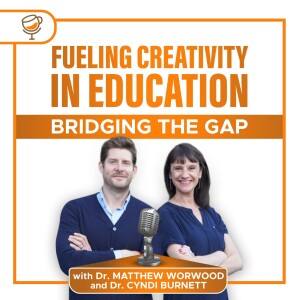
Tuesday Nov 15, 2022
Bridging the Gap: Can we separate ideas from the person?
Tuesday Nov 15, 2022
Tuesday Nov 15, 2022
In this debrief episode, Dr. Cyndi Burnett and Dr. Matthew Worwood reflect on the first five episodes of Season 5. Cyndi and Matthew begin by revising a discussion where one guest suggested we shouldn't focus on the person, only the idea. However, Cyndi and Matthew discuss if that is possible and consider how that relates to what we know of sociocultural theory.
Cyndi and Matthew also discussed the use of the word Creativity to describe a new Ph.D. program and how the aspects of the artistic process can support STEAM projects.
Subscribe to our monthly newsletter!
Eager to bring more creativity into your home or classroom?
Access various creativity resources and tools & listen to more episodes of The Fueling Creativity in Education Podcast by visiting www.CreativityandEducation.com.
What to learn more about Design Thinking in Education?
Do you want to build a sustained culture of innovation and creativity at your school? Visit WorwoodClassroom.com to learn how Design Thinking can promote teacher creativity and support professional growth in the classroom.
Have a question? Email Dr. Burnett and Dr. Worwood at questions@fuelingcreativitypodcast.com!
You can also find The Fueling Creativity in Education Podcast on Apple Podcasts, Spotify, Audible, and PodBean! Make sure to rate, review, and share the podcast if you enjoy it!

Tuesday Nov 08, 2022
Using the Artistic Process to Teach Ph.D Students with Dr. Jonathan Fineberg
Tuesday Nov 08, 2022
Tuesday Nov 08, 2022
In this episode of the Fueling Creativity in Education podcast, Dr. Cyndi Burnett and Dr. Matthew Worwood welcome Dr. Jonathan Fineberg, an art historian, critic of contemporary art, and the program director of the PhD in Creativity program at University of the Arts in Philadelphia.
Listen in to learn Jonathan’s perspective on the relationship between creativity and the arts, how art encourages us to see things in different ways and give things new meaning, and the process he uses to enable his PhD students to apply creativity to their specific discipline.
“If you want to get great abs, you do a lot of sit ups. If you want to try and be a creative thinker, you need to exercise the capacity to build the new connections in the brain for solving problems and in particular, problems that can’t be solved.” – Jonathan Fineberg
He also speaks on the beneficial role of critique in the creative process and why non-linear thinking is a critical part of The PhD in Creativity program while being frowned upon in other PhD fields.
Plus, Jonathan details how you can translate these PhD-level creativity strategies to your K-12 classroom.
“What you really want to do is understand where kids are coming from and what they’re interested in and how to enable them to do what they want to do better.” – Jonathan Fineberg
Jonathan’s Tips for Teachers and Parents:
Be a really open listener. Understand your students and what they need from you.
Develop a trust-based mentor relationship with each student. If students trust you, they will leap into something they don’t understand just because you told them to try it.
Have an open mind.
Recommended Resources:
Get your FREE download of Art Since 1940: Strategies of Being by Jonathan David Fineberg
The PhD in Creativity at University of the Arts
The Ignorant Schoolmaster: Five Lessons in Intellectual Emancipation by Jacques Rancière
Feeling & Knowing: Making Minds Conscious Hardcover by Antonio Damasio
A Field Guide to Getting Lost by Rebeca Solnit
Subscribe to our monthly newsletter!
Eager to bring more creativity into your home or classroom?
Access various creativity resources and tools & listen to more episodes of The Fueling Creativity in Education Podcast by visiting www.CreativityandEducation.com.
What to learn more about Design Thinking in Education?
Do you want to build a sustained culture of innovation and creativity at your school? Visit WorwoodClassroom.com to learn how Design Thinking can promote teacher creativity and support professional growth in the classroom.
Have a question? Email Dr. Burnett and Dr. Worwood at questions@fuelingcreativitypodcast.com!
You can also find The Fueling Creativity in Education Podcast on Apple Podcasts, Spotify, Audible, and PodBean! Make sure to rate, review, and share the podcast if you enjoy it!
About Jonathan Fineberg:
Jonathan Fineberg is an art historian, a critic of contemporary art, and the program director of the PhD in Creativity program at University of the Arts in Philadelphia. The particular art theory that has evolved in his writing over a 50-year career is a social history of art grounded in psychoanalysis and the close reading of objects. This derives from his efforts to understand the dynamics of creativity and how societies use and interact with works of art.
He is the author of "Art Since 1940: Strategies of Being," the most widely read survey of postwar art, and co-creator (with John Carlin) of "Imagining America: Icons of 20th Century American Art," the award-winning PBS television documentary of 2005. Fineberg is also the author of some 30 books and catalogs on modern art.
Learn more about The PhD in Creativity at University of the Arts
Follow University of the Arts on Instagram

Tuesday Nov 01, 2022
Integrating Creative Thinking Skills into the Curriculum with Tanya Knudsen
Tuesday Nov 01, 2022
Tuesday Nov 01, 2022
How can creativity help students learn a new language? In this episode of the Fueling Creativity in Education podcast, Dr. Cyndi Burnett and Dr. Matthew Worwood welcome Tanya Knudsen, an educator, world traveler, polyglot, and PhD candidate for creative leadership. Tanya’s currently teaching a TIM-based curriculum, Creativity Through English, via zoom to students at Wings of Change, a vocational hospitality school and hotel social enterprise in Madagascar. She teaches for creativity with an expanded and self-designed curriculum squarely rooted in the Torrance Incubation Model (TIM) for Teaching and Learning to combine Creative Thinking Skills with subjects.
Listen in to learn Tanya’s art-based framework for integrating creative thinking skills into her ESL classroom, simple strategies for keeping students engaged while teaching remotely, and how English teachers can use kinesthetic teaching to bring more creativity into the classroom.
“The thing with language is it has to be a subconscious skill, ultimately, so how can I pass the concepts into the subconscious most quickly? And I believe that to be through physical because that’s how it will resonate.” – Tanya Knudsen
Plus, Tanya describes “the language of creativity” and speaks on the immense value that creativity can bring to ESL students.
“That’s really what we want to pull out in the creative thinking skills is what is your process for developing your understanding or ability to think through the information that you’re learning so that you can evaluate, sift, and formulate your own original thought.” – Tanya Knudsen
Tanya’s Tips for Teachers and Parents:
Try! Just do it. Whatever you want to try, go for it, because everything leads to something else.
Ask questions. That’s how you learn, figure out where they are, and how to teach them more effectively.
Have fun! Kids are bored at school and humans seek play at every age, so it’s important to have fun throughout learning.
Recommended Resources:
Wings of Change – Madagascar
GoNoodle
Listen to The Idea Gym Podcast
Weaving Creativity into Every Strand of Your Curriculum by Dr. Cyndi Burnett (contributions by Tanya Knudsen)
20 Lessons to Weave Creative Thinking into Your Curriculum by Dr. Cyndi Burnett (contributions by Tanya Knudsen)
Subscribe to our monthly newsletter!
Eager to bring more creativity into your home or classroom?
Access various creativity resources and tools & listen to more episodes of The Fueling Creativity in Education Podcast by visiting www.CreativityandEducation.com.
What to learn more about Design Thinking in Education?
Do you want to build a sustained culture of innovation and creativity at your school? Visit WorwoodClassroom.com to learn how Design Thinking can promote teacher creativity and support professional growth in the classroom.
Have a question? Email Dr. Burnett and Dr. Worwood at questions@fuelingcreativitypodcast.com!
You can also find The Fueling Creativity in Education Podcast on Apple Podcasts, Spotify, Audible, and PodBean! Make sure to rate, review, and share the podcast if you enjoy it!
About Tanya Knudsen:
Tanya is an educator, polyglot, world traveler and PhD candidate for creative leadership. Tanya teaches for creativity with an expanded and self-designed curriculum squarely rooted in the Torrance Incubation Model for Teaching and Learning to combine Creative Thinking Skills with subjects. Tanya’s first creative curriculum, Creativity Through Arts, received scholarly recognition in 2021. Tanya now teaches her second TIM-based curriculum, Creativity Through English, via zoom, to students at Wings of Change, a vocational hospitality school and hotel social enterprise in Nosy Be, Madagascar. Tanya is headed to Nosy Be in the new year to conduct research for her dissertation. For Tanya, creativity is new new lingua franca and she’s on a quest to expand creativity to the far reaches of the planet.
Visit Tanya’s website
Connect with her on LinkedIn
Listen to The Idea Gym Podcast
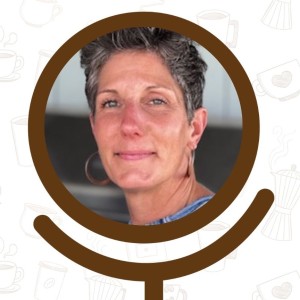
Tuesday Oct 25, 2022
Integrating Creativity into Education Leadership with Dr. Teresa Lawrence
Tuesday Oct 25, 2022
Tuesday Oct 25, 2022
How does creativity play a role in problem-solving? In this episode of the Fueling Creativity in Education podcast, Dr. Cyndi Burnett and Dr. Matthew Worwood welcome Dr. Teresa Lawrence, who is recognized as the subject matter expert on the integration of Creative Problem Solving (CPS) into project management.
Listen to how educators and school administrators can use creativity in their leadership roles. While detailing this, Teresa highlights her strategies and frameworks for teaching the integration of creativity and creative problem-solving in schools.
Plus, the trio discusses deliberate approaches to the creative problem-solving process, how to use creativity to build trust and get faculty buy-in to school initiatives, and how to ensure every person feels their voice is heard and acknowledged throughout the problem-solving and decision-making processes.
“My goal in working with school leaders is to allow them to manage challenges better with intentional and active inclusion of all voices.” – Teresa Lawrence
Teresa’s Tips for Teachers and Parents:
A little bit of creativity is better than no creativity.
Ask your administrators: What are you working on to be better at your craft?
Ask your students: How am I doing?
Recommended Resources:
Listen to the episode with Dr. Edward Clapp
Subscribe to our monthly newsletter!
Eager to bring more creativity into your home or classroom?
Access various creativity resources and tools & listen to more episodes of The Fueling Creativity in Education Podcast by visiting www.CreativityandEducation.com.
What to learn more about Design Thinking in Education?
Do you want to build a sustained culture of innovation and creativity at your school? Visit WorwoodClassroom.com to learn how Design Thinking can promote teacher creativity and support professional growth in the classroom.
Have a question? Email Dr. Burnett and Dr. Worwood at questions@fuelingcreativitypodcast.com!
You can also find The Fueling Creativity in Education Podcast on Apple Podcasts, Spotify, Audible, and PodBean! Make sure to rate, review, and share the podcast if you enjoy it!
About Teresa Lawrence, PhD, PMP, CSM:
Teresa is recognized as the subject matter expert on the integration of Creative Problem Solving into project management. She is a previous Superintendent of Schools and is currently fulltime faculty in the Graduate School of Education at the University at Buffalo. In 2016, Teresa established International Deliverables, LLC, a certified New York State Women Business Enterprise (WBE). Teresa helps individuals, teams and organizations innovate and implement solutions that build organizational capacity and ensure value realization. International Deliverables, LLC, was a 2019 Small Business Administration Home-based Business Award recipient. Since 2017, over 80K individuals have been trained by Teresa or have participated in a session she facilitated.
Connect with her on LinkedIn: https://www.linkedin.com/in/drteresalawrence
Follow her on Twitter: https://twitter.com/drtlawrence
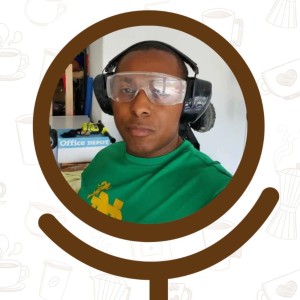
Tuesday Oct 18, 2022
Creativity Is Everywhere! Including in Teachers with Vincent Andrews
Tuesday Oct 18, 2022
Tuesday Oct 18, 2022
Creativity doesn’t just happen in the arts… it can happen anywhere! In this episode of the Fueling Creativity in Education podcast, Dr. Cyndi Burnett and Dr. Matthew Worwood welcome Vincent Andrews, a Humanities Instructor, high school art teacher, and creativity/life coach who’s passionate about identifying creative aptitude within specific domains and understanding the relationship between creative confidence and educational/training structures.
Listen in to hear how the humanities transformed Vincent’s outlook on life and learn his unique approach to cultivating creativity in an art-centric classroom, as well as other domains that are more content-driven. He then details how to use incubation in the creative process to encourage students to solve problems and use their creativity each and every day.
“You don’t even need fine arts to cultivate creativity. There’s so many powerful things we can do and we can really alter the way that we think and develop our students moving into the future.” – Vincent Andrews
Plus, he speaks on the specific experiences that are critical to cultivating creativity in education and how teachers can begin to prioritize and grow their own creativity.
Vincent’s Tips for Teachers and Parents:
Dive deep into what creativity actually is. There are so many resources out there that you can reference and incorporate into your curriculums!
Look into your lesson plans and see how you can implement creative processes each day, not just once in a blue moon.
Creativity doesn’t just happen in the arts. Show your kids what creativity means and how they can use it on a daily basis in any environment.
Recommended Resources:
Listen to the episode with Albert Schneider
Listen to the episode with Dr. Marta D. Ockuly
Subscribe to our monthly newsletter!
Eager to bring more creativity into your home or classroom?
Access various creativity resources and tools & listen to more episodes of The Fueling Creativity in Education Podcast by visiting www.CreativityandEducation.com.
What to learn more about Design Thinking in Education?
Do you want to build a sustained culture of innovation and creativity at your school? Visit WorwoodClassroom.com to learn how Design Thinking can promote teacher creativity and support professional growth in the classroom.
Have a question? Email Dr. Burnett and Dr. Worwood at questions@fuelingcreativitypodcast.com!
You can also find The Fueling Creativity in Education Podcast on Apple Podcasts, Spotify, Audible, and PodBean! Make sure to rate, review, and share the podcast if you enjoy it!
About Vincent Andrews:
Vincent Andrews works primarily as a Humanities Instructor and high school art teacher. He also is a creativity/life coach working with individuals to reach their individual goals. Vincent is extremely interested in cultivating creativity in education and organizations and his research is focused on identifying creative aptitude within specific domains, in addition to understanding the relationship between prevalent educational/training structures and the creative confidence of its participants that ensues as a result of these structures.
Visit his website
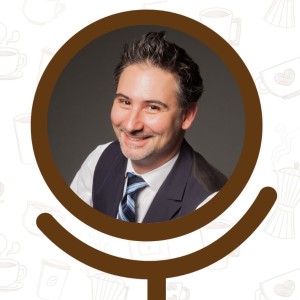
Tuesday Oct 11, 2022
Tuesday Oct 11, 2022
Kicking off Season 5 of the Fueling Creativity in Education podcast, Dr. Cyndi Burnett and Dr. Matthew Worwood welcome Dr. Edward P. Clapp, a Principal Investigator at Project Zero. Edward explores creativity and innovation, design and maker-centered learning, contemporary approaches to arts teaching and learning, and diversity, equity, and inclusion in education.
Listen in as Edward shines a light on the power of participatory creativity, how to overcome the eight crises of creativity in education, and how to use “a biography of an idea” to tell the story behind an idea. He also discusses why it’s beneficial to remove individualism, or the ego, from the participatory creative process and specific strategies teachers can use to facilitate participatory creativity and collaboration in the classroom.
“The way that I define participatory creativity is uniquely contributing to the development of creative ideas within a particular social and cultural setting.” – Dr. Edward P. Clapp
Plus, you’ll gain insight into how to introduce access and equity to the creative classroom, how to overcome the potential pitfalls of participatory creativity, and when to push students beyond their comfort zone as opposed to just letting them be their best selves in the classroom.
Recommended Resources:
Project Zero
Listen to the episode with Michael Hanchett Hanson
Don’t call it collaboration! On ResearchGate
Participatory Creativity by Edward P. Clapp
Subscribe to our monthly newsletter!
Eager to bring more creativity into your home or classroom?
Access various creativity resources and tools & listen to more episodes of The Fueling Creativity in Education Podcast by visiting www.CreativityandEducation.com.
What to learn more about Design Thinking in Education?
Do you want to build a sustained culture of innovation and creativity at your school? Visit WorwoodClassroom.com to learn how Design Thinking can promote teacher creativity and support professional growth in the classroom.
Have a question? Email Dr. Burnett and Dr. Worwood at questions@fuelingcreativitypodcast.com!
You can also find The Fueling Creativity in Education Podcast on Apple Podcasts, Spotify, Audible, and PodBean! Make sure to rate, review, and share the podcast if you enjoy it!
About Dr. Edward P. Clapp:
Edward P. Clapp, Ed.D. is a Principal Investigator at Project Zero interested in exploring creativity and innovation, design and maker-centered learning, contemporary approaches to arts teaching and learning, and diversity, equity, and inclusion in education. In addition to his work as a researcher, Edward is also a Lecturer on Education at the Harvard Graduate School of Education. Edward’s most recent books include Participatory Creativity: Introducing Access and Equity to the Creative Classroom (Routledge, 2016) and Maker-Centered Learning: Empowering Young People to Shape their Worlds (with Jessica Ross, Jennifer Oxman Ryan, and Shari Tishman, Jossey-Bass, 2016).
Connect with him on LinkedIn
Follow him on Twitter
Check out his books



